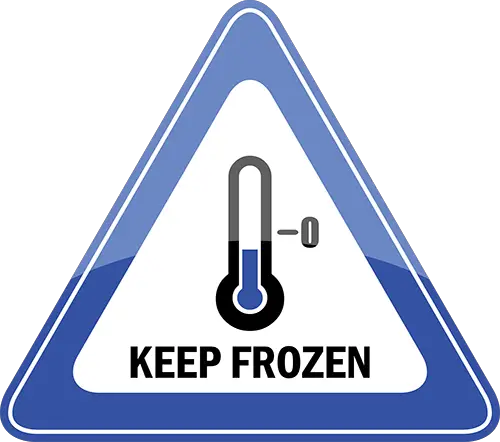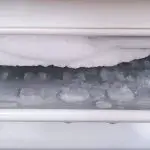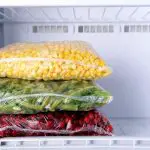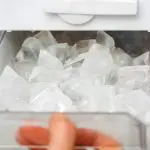Is Ice Buildup in a Freezer Bad? (Tips to Prevent Frost)
Have you ever wondered, if ice buildup in a freezer is a bad thing? Do you need to clear it and try to prevent it? Lots of people encounter this issue, so let’s find out more about it.
A buildup of ice in the freezer is bad. Frost will compromise the taste and texture of your food, and decrease the efficiency of your appliance, meaning that your freezer will cost more to run. Fortunately, you can prevent frost with a few handy tips, like only putting room temperature foods in the freezer.
In this article, we’re going to explore the best and most effective ways for keeping your freezer free from frost and making sure it’s working as efficiently as possible. I will also touch on why ice buildup in your freezer is a problem and what causes it.
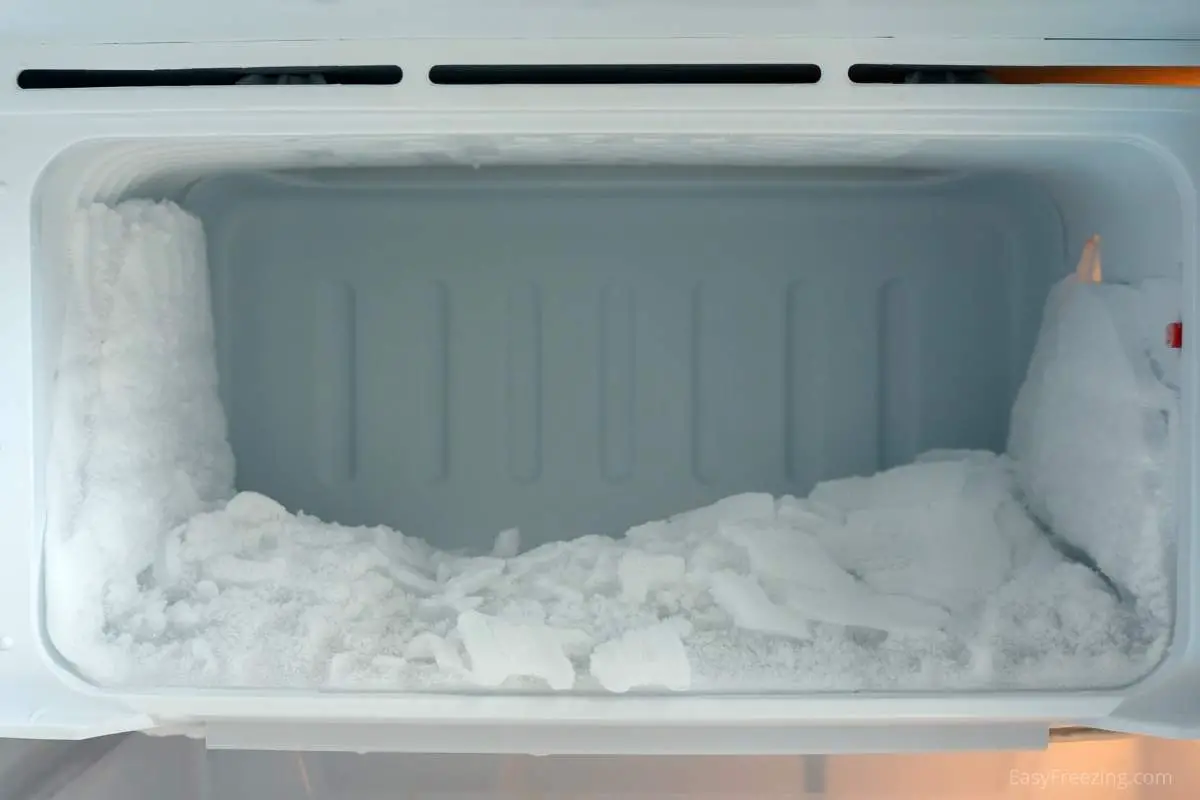
Why Does Ice Get Into The Freezer?
Ice buildup in the freezer is somewhat inevitable, and many people notice that their freezers get it on a regular basis. It can be a pretty frustrating thing to see because defrosting a freezer is a lot of work and can result in food wastage. Frost can cause the following problems:
- It increases the risk of freezer burn, which ruins the texture of your foods
- It reduces the amount of space you have for storing food
- It can spoil the taste of your foods
- It makes your appliance run less efficiently, increasing your energy bills
- In extreme cases, ice crystals forming in the food might reduce the safety of the food, although this is a rare occurrence.
As you can see, ice buildup in the freezer isn’t a good thing, and it can be caused by a whole range of issues, including a poorly fitted seal, leaving the door open for too long, putting hot food in the freezer, putting the freezer in the wrong place, and more.
Most people encounter this issue fairly often with their freezer and have to go through a lengthy and frustrating process that involves defrosting the freezer completely, drying it, and then re-freezing it. This is time-consuming and can be really difficult if your freezer has a lot of food in it because you won’t have anywhere to store this food while the freezer thaws.
With that in mind, let’s look at some top tips for preventing your freezer from becoming an ice cave and reducing how often you need to thaw out your freezer.
Tip 1) Don’t Add Wet Food To Your Freezer
If you’ve bought some frozen food at the store and it has slightly defrosted during the journey home, you may notice that the outside of the packaging is wet. This water will be frozen again when the item is added to the freezer, and this can add to problems with frost buildup.
You can reduce the issue by keeping a towel near your freezer and quickly drying any items you are about to add to it. They don’t need to be bone dry, but by reducing the amount of moisture you add to the freezer, you should be able to minimize how much frost builds up inside.
If you have defrosted your freezer, any food that was left out of it during the process will also have condensation on the outside. Dry these items off before putting them back in the freezer.
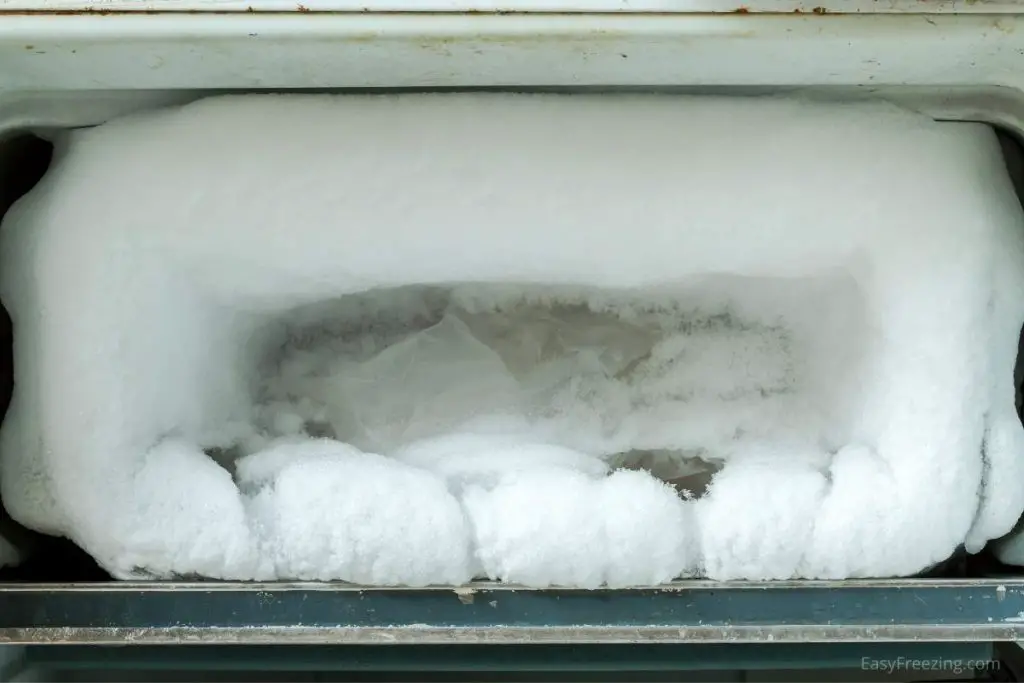
Tip 2) Don’t Add Hot Food To The Freezer
When you’ve just cooked a delicious meal and there are plenty of leftovers, it’s pretty normal to want to add these to the freezer as soon as possible so that they are chilled and their shelf life is maximized. If you are conscious of food safety, you’re even more likely to put dishes into the freezer quickly.
However, this isn’t good for your freezer and you should avoid doing it. Hot food causes a lot of humidity, and this will vent onto the freezer walls. When the water vapor is then cooled, it will freeze, causing frost buildup. You, therefore, need to make sure that you give the food plenty of time to cool down.
You should only ever put room temperature food in your freezer, not hot or even warm food. If you need to chill food more quickly, you should place the container in a shallow dish with cold water or even ice cubes. Check that it has reached room temperature and then dry the container before putting it in your freezer.
This should significantly decrease the amount of ice that will form inside the freezer.
Tip 3) Check The Gasket Around The Freezer
If your freezer seems to suffer from a lot of frost buildup no matter what you do, you should check the gasket as soon as possible. If the gasket isn’t airtight, you’ll find that your freezer is constantly pulling in warm, damp air from outside and freezing the dampness inside itself.
Your gasket may be getting pushed aside by items within the freezer, or a misaligned drawer. It could also have been damaged by something. Make sure it is in the right place and that it is in good shape, and repair or replace it if not. This should reduce the buildup of ice significantly.
It is a good idea to regularly clean the gasket too. Dirt and mold on it will stop it from functioning properly. Use a soft cloth and hot, soapy water to wipe it down every few weeks, and if any mold forms on its surface, use bleach to get rid of it.
Tip 4) Minimize How Often You Open The Freezer
Every time you open the door of your freezer, you let the cold air flow out and warm air flow in. The warm air is often damp and will cause condensation on the walls of the freezer, and this will then freeze and contribute to frost buildup.
If you open your freezer multiple times a day to put things in and take things out, the frost will build up much more quickly. You should minimize how often you need to go in the freezer.
Always double-check that you have shut the door tightly after getting something out of the freezer, as leaving it open will cause a lot of frost buildup.
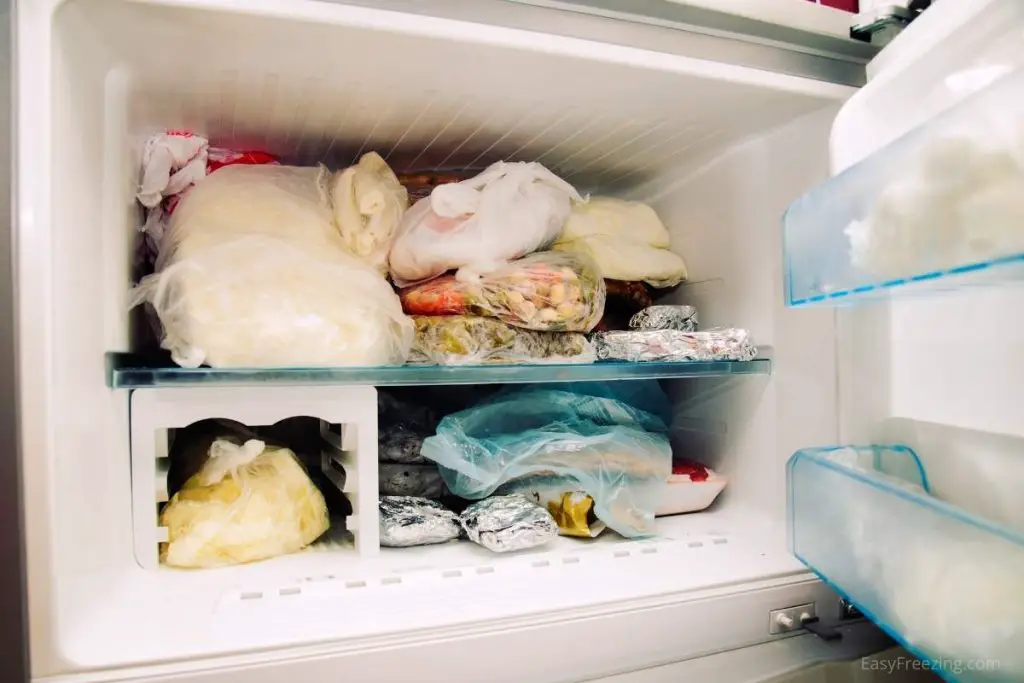
Tip 5) Don’t Overfill The Freezer
It is true that you don’t want your freezer to be empty because keeping the air frozen requires more energy than keeping lots of products frozen, but you also don’t want it to be too full. Too much or too little food can cause frost to form.
Although it is somewhat flexible, most freezers work best when they have about 3 pounds of food for every cubic foot of space. Keep a little wriggle room so that the air can circulate well, and don’t stuff every drawer or shelf to the brim. An overloaded or underutilized freezer will produce frost significantly more quickly.
Tip 6) Check The Temperature in Your Freezer
Your freezer needs to be set to the right temperature to operate well. Some people believe that keeping it at the lowest possible temperature is the best way to ensure that their freezer runs efficiently, but that isn’t the case.
Your freezer should instead be set at 0 degrees F (or -18 degrees C) to prevent ice from building up inside it. You should make a point of checking the settings from time to time to ensure nothing has got switched.
If you are having problems with frost and you can’t work out why, you might want to use a separate thermometer to check what temperature your freezer is. If the thermostat has gone wrong inside it, it may display 0 degrees F but actually be set at a different level. Check this to make sure.
Tip 7) Keep The Freezer Temperate
Not everyone has much choice about where they put their freezers, but you should make an effort to keep your freezer in a room that does not get either too hot or too cold. Avoid positioning it beside a radiator, hot water storage, oven, or other source of heat.
Cold is less of an issue, but don’t keep your freezer in an icy environment either. Temperature extremes of either sort will cause your freezer to work harder, and this will contribute to frost forming inside.
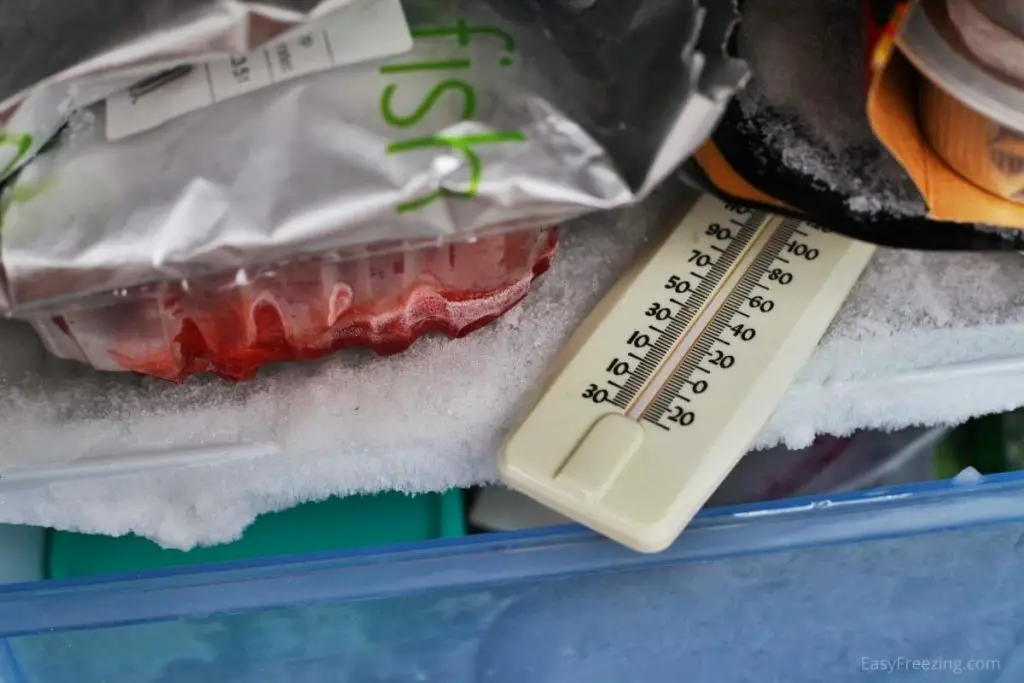
Tip 8) Keep Your Freezer Away From The Wall
It might be tempting to shove your freezer as close to the wall as possible so that you can maximize your floor space, but doing so won’t help it to function well. Your freezer has coils at the back that disperse heat, and they need an open space for this.
You should therefore make sure that your freezer is kept a short distance from any walls so that air can circulate it and pull heat away from the coils. This ensures that it can operate efficiently and reduces the risk of frost building up inside.
Is Ice Buildup in a Freezer Bad – Conclusion
Frost in a freezer is never a good thing; it reduces the efficiency of the machine, may compromise your food’s integrity, and can increase your energy bills.
Defrosting a freezer is a nuisance, so preventing frost buildup is the best possible option – and hopefully the 8 tips listed above will help you to do so!
